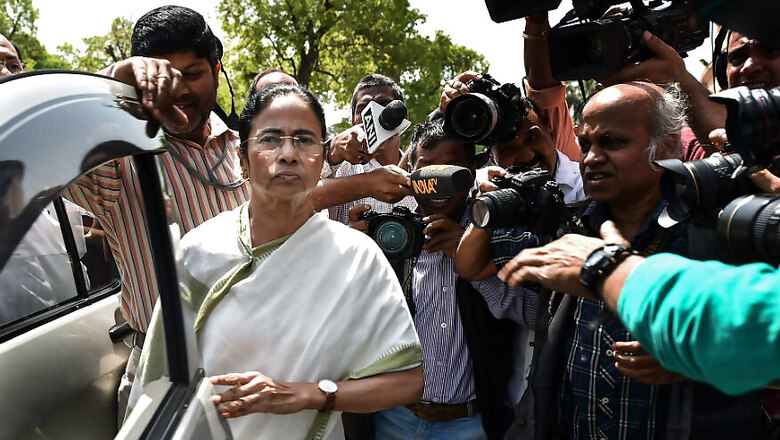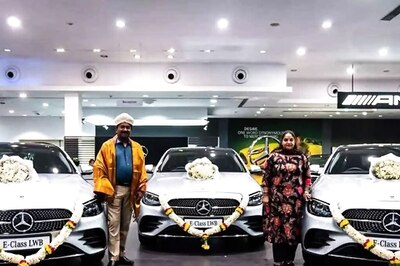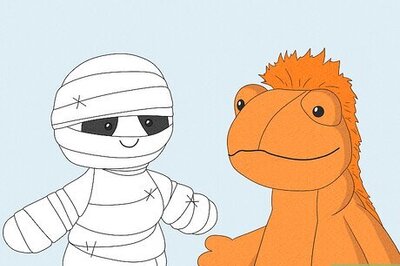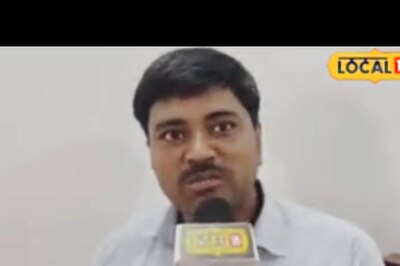
views
Lok Sabha elections are still a year away, but political activities are furiously changing the temperature. Today, two questions are on everyone’s minds — will Modi be the Prime Minister again? Will the opposition unite to make the fight even?
Modi is definitely not as popular as he used to be despite his massive victories in Uttar Pradesh and Uttarakhand and breaking new grounds and many myths in north eastern states.
The BJP right now is in power in 22 states and if credit should be given to one person, it is Modi and nobody else. Amit Shah is only a tool to execute his ideas and endeavour. There is no doubt that Amit Shah has turned the BJP into a big election machine; still, he is the executioner and not the originator of the ideas.
So at a time when Modi is downhill, economy does not show any sign of improvement, rural distress is increasing, joblessness has become a new monster, there are accusation of corruption in the Rafael deal, the alleged proximity with Nirav Modi has raised a few unanswered questions and allies seem to have tasted blood, the question is can the opposition exploit the situation to its advantage? It is in this context that Mamata Banerjee’s visit to Delhi and her meetings with the opposition leaders assumes significance.
Mamata Banerjee belongs to a state where the BJP is still a marginal player, but has ambitious plans. Slowly, Left and Congress have been relegated to the fringe. Mamata knows that the BJP will be her future enemy. Both the RSS and the BJP and all their affiliates are concentrating their energies with a long-term vision in West Bengal.
The communal clashes in the state are the by-product of the aggressive assertion of the BJP to challenge the dominance of the Trinamool Congress. The mobilisation on the religious lines will be a new experience for her. It would be in her interest if she could come out of the past, leave her acrimony with Left on the back burner and stitch a relationship to nip the challenge in the bud. But the Left also has its dilemma. It can’t leave a state like this where it had ruled like a king for 35 years. Therefore, her first challenge would be to manage her state and present that as model for the rest.
Mamata has to play the role of Devi Lal. The strong man of Haryana had emerged as a pillar of strength in late 1980s. It was the time when Rajiv Gandhi had the most historic mandate, more than 400 seats in the Lok Sabha, the Opposition seemed to have vanished, the BJP had only two seats, and Andhra’s TDP led by NT Ramarao was the biggest party in the opposition benches in the Lok Sabha.
The Opposition was in shambles then. It needed a leader who could unite them. Devi Lal was the chief minister of Haryana and was old enough to patronise others. VP Singh was no doubt the star attraction, was the face and the crusader. But he had no links with the opposition leaders. All his life he had been in the Congress. He was a chief minister of Uttar Pradesh and later finance minister in the Rajiv Gandhi cabinet, before resigning over the Bofors scandal.
Initially, VP Singh was reluctant to join hands with the opposition. He had created his own platform called the Jan Morcha. He was in two minds on whether he should carve his own path or to go with the rest. His dilemma was how he can join the forces he had fought all his life. He was also worried if it would compromise his image as ‘Mr Clean’.
Senior leaders led by Devi Lal, Harkishen Singh Surjit, Jyoti Basu, NT Ramarao, Ram Krishna Hegre and LK Advani convinced him that without a joint opposition, the whole exercise would be futile. A man with a sharp mind, he understood the logic.
The Congress at the time was a colossus. It was not a party, but a system. The Congress could be defeated only when the opposition came together. The experiments of 1967 and 1977 were the two examples before the nation. Devi Lal played a great role in getting Left, Right and Centrist forces together. All the splintered groups of the Janata Party were requested to merge their identities and form the Janata Dal.
For those who could not join the Janata Dal, a National Front was created. The Left, led by the CPM, and the BJP decided to support the National Front from outside, without diluting their core ideologies. It was a unique experiment. The VP Singh government was supported by the two most ideologically antagonistic parties. The BJP and Left were the two crutches on which the National Front government of VP Singh was standing. Today, Mamata and other opposition leaders have to recreate the same magic.
Today, the world is less ideological despite the rise of the Right across the globe. Since the Second World War, the world was sharply divided into two ideological camps. India was no different. In 1980s, the Left in India was powerful, the BJP was weak. Still it was unthinkable to put the two together on the same pedestal. But politics was dictated by the practical realities on the ground. The need was to defeat the Congress, which was overwhelmed by corruption charges. Leaders then were smart, they could read people’s pulse. Will they do the same today is the question. The question also is whether Mamata can play that role.
In a de-ideologised world, Mayawati and Akhilesh Yadav have shown the way. If they can come together to defeat the BJP in Gorakhpur and Phoolpur, then Mamata and the Left can also jointly declare their intent to fight communal forces.
K Chandrasekhar Rao and the Congress in Telangana, and TDP and YSR Congress in Andhra Pradesh can also develop an understanding to fight Narendra Modi. There is hardly any difference between the Congress and the NCP, and they can easily be together. The Shiv Sena and MNS can also be spoken to to understand the logic of Modi’s defeat. No wonder Mamata is meeting and talking to all of them, including Arvind Kejriwal.
Mamata has excellent relationship with Sonia Gandhi. She knows the Congress in and out and she is the right person to make her think that a nation-wide platform will ultimately help the Congress. If Modi is not defeated in 2019, the Congress will suffer the most. The Congress can talk to Naveen Patnaik and Mamata can be a mediator.
Like anti-Congress-ism of the 1980s, anti-BJP-ism can be the glue today. The TDP has already left the NDA, the Shiv Sena is acting like an opposition party, Om Prakash Rajbhar in UP is unhappy, Upendra Kushwaha is meeting Lalu Prasad Yadav, Ram Vilas Paswan is also squirming.
The need of the hour is to chalk out a plan and a common minimum programme without fighting for the face of the platform. Modi can be defeated, but opposition has to first believe this.
(The author is an Aam Aadmi Party leader. Views are personal)


















Comments
0 comment